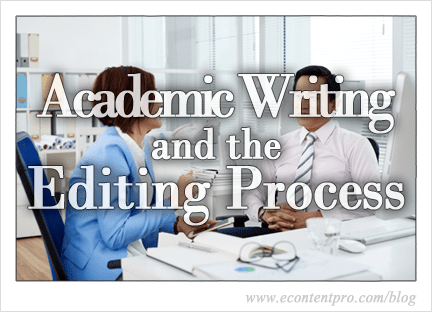
Most academic leaders and professors write frequently, but it takes someone who can persevere through the intellectual rollercoaster that is scholarly writing to become prolific and well-renowned. Authoring successful publications takes grit, and according to Megan Lowe, Associate Professor and Library Director at the University of Louisiana at Monroe, it takes the ability to endure “blood, sweat, and tears,” or, “a process full of failure, triumph, ups, and downs.”
Prof. Lowe recently co-authored a publication with IGI Global, entitled, “Examining the Emotional Dimensions of Academic Librarianship: Emerging Research and Opportunities.” Due to her book’s rising impact, and as an emerging researcher in her field, eContent Pro International wanted to gain some insight from her on the writing process and her general editorial approach to each publication:
Q: Briefly, what’s your background as a researcher/scholar?
A: I've worked in libraries in some capacity or another since 1997, but since, I have mostly worked as a reference and instructional librarian (until a couple of years ago), and I tend to focus on reference and information literacy topics. I am also interested in plagiarism behaviors among students and faculty as well as faculty-librarian relations. It has been rather accidental that I started doing research on the emotional dimensions of librarianship.
Q: What’s your favorite aspect of being an author?
A: Helping others find solutions for the problems that they face as professionals and letting them know that they aren't alone.
Q: How would you describe your writing style?
A: It’s probably not as professional as it could be, but my writing style is more human and informal than many others.
Q: How would you describe the writing process that you go through?
A: Blood, sweat, and tears. It's most certainly a process full of failure, triumph, ups, and downs.
Q: How important is the peer review process? What’s your approach in addressing constructive feedback?
A: The peer review process is one of the most critical aspects of publishing research. Without vetting research properly, we run the risk of spreading misinformation and disrupting the productive, efficient, and meaningful flow of scholarly communication, regardless of the field or discipline. With regard to addressing constructive feedback, I first consider whether what the viewer suggests or recommends reflects their understanding of what I've written. Then, if it appears that they do, I consider whether their suggestion fits with the purpose/goal and flow of my own writing. I regard constructive feedback as something that’s helpful; if the reviewer's feedback is not helpful, to me as an author or from their perspective as a reader, I will disregard it.
Q: When writing authored publications, such as a Research Insight for IGI Global, do you conduct any proofreading yourself?
A: To the best of my ability, yes. There comes a point in the writing or editing process when you can't "see" what you're reading anymore.
Q: What role does copy editing play in the success of your publications? What’s its level of importance, and why?
A: Copy editing should be regarded as a critical aspect of any publication. We all make mistakes, and without someone checking behind us, we run the risk of disrupting the scholarly communication process and/or garbling our own message. Therefore, it is very important.
Q: When it comes to the copy editing of academic work, what advice do you have for other authors or editors?
A: Patience, patience, and focus. It can be boring and seem onerous, but it's important.
Many thanks to Professor Megan Lowe for her cooperation and insights
About eContent Pro
To ensure your writing is grammatically flawless, let eContent Pro (eCPro) help you.
At eCPro, we take pride in providing top-notch editorial services that are tailored to meet the needs of our clients. With over 20 years of experience in the publishing industry, we have earned a reputation for delivering high-quality work that is error-free and polished to perfection at the quickest turnaround time.
When you choose eCPro for your copy editing and academic proofreading needs, you can rest assured that you are working with a team of experts who are passionate about what they do. Our native English-speaking copy editors and certified proofreaders are highly experienced and specialize in over 10 research areas, ensuring that your document is in good hands.
In addition, we use Microsoft Word's Track Changes feature to perform edits, allowing you to easily review and manage the changes made to your document. We also follow various style guides, including APA 7th edition, MLA, APA, Chicago Style, and more, to ensure that your document adheres to the standards set by your academic institution or publisher.
At eCPro, we are committed to providing excellent service at a competitive price. Our English Language Copy Editing and Proofreading service costs just US $0.06 per word, with a turnaround time of 2-3 business days at no extra cost. Your total cost of copy editing will also benefit from our current 10% academic discount.
Through our analysis, we have seen a much higher acceptance rate and quicker submission processes with manuscripts that have received our English Language Copy Editing and Proofreading and Scientific & Scholarly Editing services. If you use one of our bundled services, you will receive an additional 10% discount that can be combined with our current 10% academic discount for a total discount of 20%!
So why wait? Contact us today to learn more about our editorial services and how we can help you achieve your publishing goals. With our team of experts by your side, you can be confident that your document will be polished to perfection and ready to stand out in the competitive publishing landscape.
Upload Your Document Now